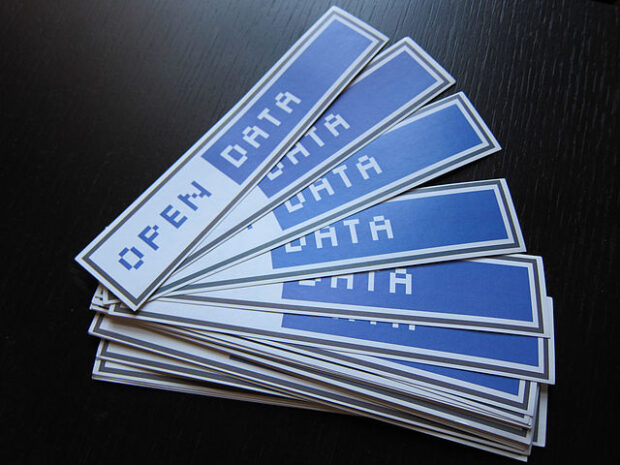
In his last post, Paul Maltby, Director of Open Data and Government Innovation in the Cabinet Office, discussed platforms. Here, he expands on his theme…
The notion of ‘government as a platform’ has been talked about for some years following an article by Tim O’Reilly, and is one of the main intellectual drivers for the open data movement.
Tim describes the old world of government as a ‘vending machine’, spitting out pre-formed products to citizens. In contrast, the new world of government as a platform sees government opening up the raw material of open data, which others who are wholly unrelated to government can use to create businesses, help complement public services, or use to hold government itself to account. (But note that in contrast to the situation in the private technology economy, our governments do not use open data to try to become a controlling platform, harvesting the data from products created back into the system to create profit).
But while in Silicon Valley I had a second-stage “government as a platform” epiphany when we heard several times, about a famous (apparently embellished) mandate from Amazon CEO Jeff Bezos about his desire to create an internal platform within Amazon:
- “All teams will henceforth expose their data and functionality through service interfaces.
- Teams must communicate with each other through these interfaces.
- There will be no other form of inter-process communication allowed: no direct linking, no direct reads of another team’s data store, no shared memory model, no back-doors whatsoever. The only communication allowed is via service interface calls over the network.
- It doesn’t matter what technology they use.
- All service interfaces, without exception, must be designed from the ground up to be externalizable. That is to say, the team must plan and design to be able to expose the interface to developers in the outside world. No exceptions.
- Anyone who doesn’t do this will be fired. Thank you; have a nice day”
The process of mandating that all internal data transactions take place via internal APIs - and the accompanying hard slog of forcing common data vocabularies on all parts of the business - was widely credited as a driver of Amazon’s astonishing burst of creativity in the decade following this decision back in 2003.
It meant that an individual team within the organisation could no longer proprietorially hold back data about products, people and services in the organisation. Instead, employees could find and play with data from across the organisation, and they knew that because of the hard work with the vocabularies that the data would be interoperable across the business.
The business’s success drew on a strongly entrepreneurial corporate culture, widespread hacking skills and mentality, and a fast-changing external environment that was creating many new opportunities.
Now, imagine if the hard slog endured by Amazon to create common dictionaries for data was used across government… I’ll talk more about that in my next blog, but until then, I’d be curious to hear any thoughts you have on government as a platform.
Follow Paul on Twitter.
1 comment
Comment by simonfj posted on
Hi Paul,
I got this one for you. RE: as the platform and api talk. http://aralbalkan.com/notes/how-web-2-0-killed-the-internet/ Always good to have a very opposite perspective.
I suppose I just interpret the idea of "service interfaces" - “All teams will henceforth expose their data and functionality through service interfaces" a bit more generally. It includes the "open api" idea. But the big challenge, in government especially, include building "service interfaces" between teams who do the same things in different silos.gov and never talk to one another. One needs to treat both the internet AND the web as two distinct approaches to networking. http://www.computerhistory.org/revolution/networking/19/314
When I read something like this, I'm puzzled. "In contrast, the new world of government as a platform sees government opening up the raw material of open data, which others who are wholly unrelated to government can use to create businesses, help complement public services, or use to hold government itself to account. You're obviously talking about "governance", and there are all sorts of approaches to "open" i.e. governance, education, data, etc. Each has a different (sectoral) slant on the same ideal.
But (being a practical thinker) they all generate the same architectural model in the minds of the long suffering engineers who run public (inter(net)works and must protect their users' privacy and security. So we 'd be better off, rather than (just) talking about platforms and apis, to talk about "the implications (and user experience) of having multiple identities for multiple systems, vs. a single identity across multiple systems". https://governmenttechnology.blog.gov.uk/2014/06/24/identity-and-access-management/#comment-827
Networks can't tell the difference between .edu and .gov. That's simply a DNServer convention, while access to both is just a matter of attributes allocated to an network account. Disreali's plea, about "educating our leaders" still rings true. That's a little hard when "Government as a platform" is treated as a castle whose drawbridge is only lowered occasionally 🙂